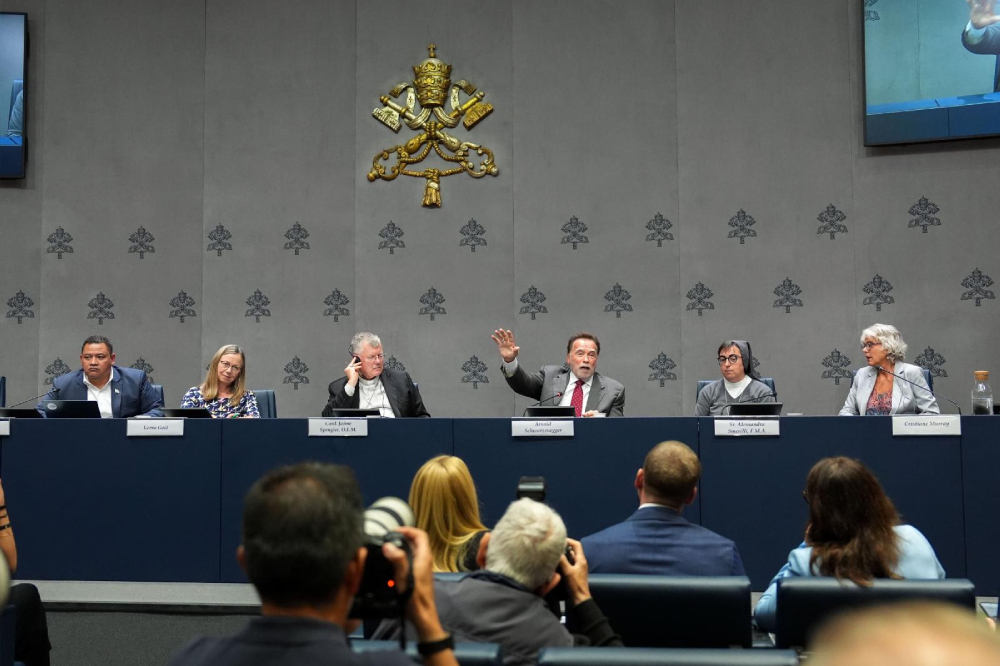
Church, Government Leaders Set Sights on COP30 at Vatican Climate Meeting
Justin MCLELLAN
The upcoming United Nations Climate Change Conference (COP30) taking place in Belém, Brazil, "represents a historic call for the Church to reaffirm its prophetic position" on climate justice, a leading Brazilian Cardinal said.
"Global institutions and multilateral negotiations are falling far short of what is needed," said Cardinal Jaime Spengler, Archbishop of Porto Alegre and President of the Brazilian Bishops' Conference, during an Oct. 2 address on climate and the upcoming summit. "Hence the urgency of rebuilding trust in cooperation and dialogue."
Spengler's address came during the “Raising Hope for Climate Justice” conference hosted on the grounds of the papal summer residence outside Rome to mark the 10th anniversary of Pope Francis' environmental encyclical, "Laudato Si', on Care for Our Common Home." The Conference, kicked off by Pope Leo XIV calling for a "true ecological conversion" that moves people to climate action, brought together Church leaders, scientists, policymakers and activists to reflect on the encyclical's impact and mobilize action ahead of COP30.
Among the opening speakers was Arnold Schwarzenegger, the former governor of California and film icon, who called the Pope an "action hero" for taking on climate action at the Vatican.
The Belém summit, scheduled for Nov. 10-21, is expected to be one of the most consequential climate gatherings since COP21, which culminated in the 2015 Paris Agreement.
Under the Paris Agreement, countries are required to submit updated "Nationally Determined Contributions" — national climate action plans that set their emissions and adaptation targets — every five years. The latest round was due in September ahead of COP30, but many countries have yet to file their plans. Spengler warned the delay is "very serious," given that these pledges "mark the path for the next five years and beyond."
"The Church will not remain silent and is called to raise a prophetic voice that heals the broken socio-environmental fabric," he said.
Bishops' conferences from Africa, Asia, Latin America and the Caribbean pledged in July to create an observatory for climate justice "to monitor the commitments of the COPs and their fulfilment in the Global South, as well as to denounce unfulfilled commitments." Ahead of COP30, they warned that the climate crisis "is an existential issue of justice, dignity and care for our common home."
As president of the Latin American Bishops' Council, Spengler signed the pledge on behalf of the region's Bishops.
Marina Silva, Brazil's environment minister who is leading a COP30 initiative to study the ethical challenges that obstacle people and nations from taking climate action, opened the conference outside Rome by noting the progress made in previous COP meetings, such as the commitment to tripling the world's renewable energy and doubling its energy efficiency by 2030.
"Today, we possess in large part the technical solutions, policies and legal regulation to execute that unpostponable agenda," she said. "What we need now is the ethical determination to fulfill those commitments to benefit future generations, and, above all, the most vulnerable and marginalized people."
Silva reiterated the Brazilian government's invitation for the Pope to participate in COP30, although the Vatican has not indicated that Leo will attend.
"I am convinced that, in this way, His Holiness will make an indispensable contribution so that COP30 goes down in history as the great collective effort of implementation," she said to applause from conference attendees.
Speaking to journalists at the Vatican before the climate conference, Spengler said that COP30, "which will be celebrated at the door to the Amazon," must result in courageous decision-making on the part of world leaders "seeing as science shows that time is running out."
The choice to host COP30 at Belém, at the edge of the world's largest rainforest, underscores the conference's urgency. The Amazon is under intensifying pressure from deforestation, drought and fires that scientists warn could tip parts of it from being some of the world's largest carbon sinks to becoming net carbon emitters.
"We are at the limits of what is possible," Spengler said. "A little further, and we will have no means to return."



Leave a Comment